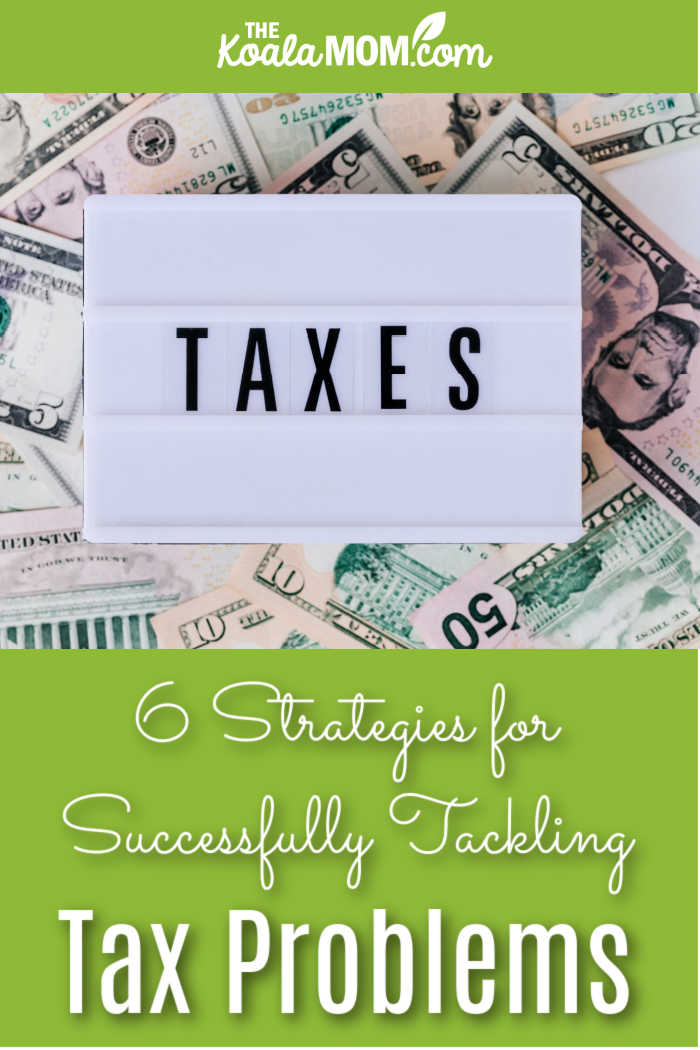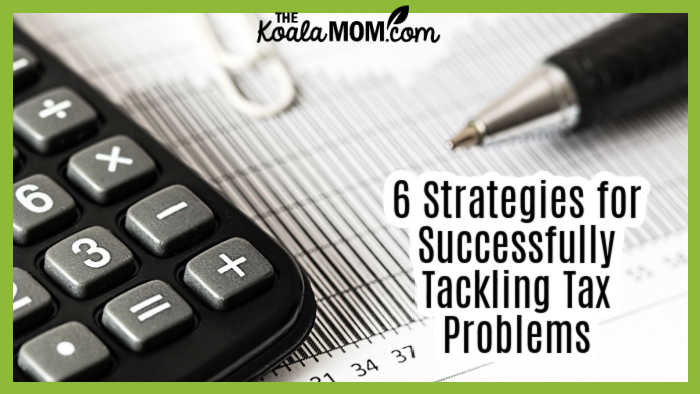Are you feeling overwhelmed when it comes to dealing with your tax problems? You’re not alone. Navigating the tricky terrain of taxes can be a huge challenge and understanding what steps need to be taken can be difficult. Fortunately, there are a few strategies that can help make tackling your tax troubles much easier.
In this blog post, we’ll explore 6 helpful strategies for successfully addressing even the most pesky of issues surrounding taxes so that you can rest easy knowing that you have done everything in your power to manage your finances responsibly.

Get organized
Organizing your tax matters is a vital step in effectively addressing any tax-related issues that may arise. This means creating a system to track all of your tax documents and records, such as receipts, income statements, and expense reports.
Having a designated place to store and organize these documents will not only make filing taxes easier but also make it simpler to identify any potential issues or discrepancies. This could include using a filing cabinet, binder, or digital document management system. By having all your tax documents in one place, you can easily access them when needed and stay on top of any important deadlines.
It’s a good idea to have a checklist for the documents you need for your taxes each year. For example, make a list of all the charities that you donate money to and double-check that you get a charitable donation receipt from each.
I have a file folder for each tax year. Any tax receipts, medical expenses, and other documents required on my taxes go into that folder throughout the year. At tax time, I pull out the folder and organize the receipts / documents inside by category. If you receive tax-related documents electronically, then create a similar folder in your email account to organize your taxes.
Research the best options for dealing with the issue
Research the best options for dealing with your tax problems, as every situation may require a different approach. This could include seeking advice from a qualified tax professional who can provide personalized guidance and assistance. They can also help you understand the complexities of taxes and offer solutions that are tailored to your specific needs.
You can check BC Tax Review to determine its suitability for your needs. By doing thorough research and consulting with a professional, you can make informed decisions on the best course of action for your specific tax problems. In all actuality, the very same tax platforms that give the ability to file free taxes online, usually have the capability of uploading and more-or-less storing your electronic tax-related documents.
File an extension if you need more time to prepare your taxes
In some cases, you may need more time to prepare your taxes due to various reasons such as a major life event or unexpected circumstances. In these situations, it’s important to file for an extension with the IRS. This will give you extra time to gather all necessary documents and ensure that your taxes are filed correctly.
Be sure to submit your extension request before the tax deadline to avoid any penalties or late fees. Remember, filing an extension does not mean you can postpone paying your taxes if you owe the government money. It simply gives you more time to prepare and submit your tax return.
In Canada, you don’t need to file an extension if you are late getting your taxes done. However, it’s best to get your taxes done on time to avoid interest charges or penalties on taxes due, or to prevent a disruption to your benefits or credit payments. For example, Canada Child Tax Benefit payments are calculated based on your previous year’s income, so if you haven’t filed your taxes, then Canada cannot update your benefits.
Know what deductions and credits you have
Utilizing deductions and credits is a highly effective strategy for minimizing your tax burden. These can help lower your taxable income and potentially result in a larger tax refund. Some common deductions include charitable donations, mortgage interest, and medical expenses.
Credits are also helpful as they directly reduce the amount of taxes you owe. Examples of tax credits include the child tax credit, education credits, and energy-efficient home improvements. It’s important to research and understand the deductions and credits you may be eligible for in order to maximize your tax savings.
Understand how to appeal an audit or dispute discrepancies in documents
If you receive a notice from the IRS that your tax return has been audited or there are discrepancies in your documents, don’t panic. Take the time to understand the issue and gather any supporting evidence or documentation. You have the right to appeal an audit or dispute any discrepancies found by the IRS. This can be done through written correspondence or in-person meetings with an IRS representative. It’s important to remain calm and professional during this process and provide any necessary information to support your case. Seeking the help of a tax professional can also be beneficial in navigating an audit or dispute.
Stay proactive for future tax seasons
Lastly, it’s important to stay proactive when it comes to your taxes in order to avoid future issues and complications. This means keeping up with any changes in tax laws or regulations, regularly organizing your tax documents, and staying on top of important deadlines. It may also be helpful to review and adjust your withholdings throughout the year to ensure you are not over or underpaying taxes. By taking a proactive approach, you can avoid potential tax problems and have more control over your finances.

Tackling tax problems can feel like an overwhelming task but by following these 6 strategies, you can effectively address any issues that may arise. With these strategies in mind, you can confidently navigate the world of taxes and ensure that your finances are in order.

No Responses Yet